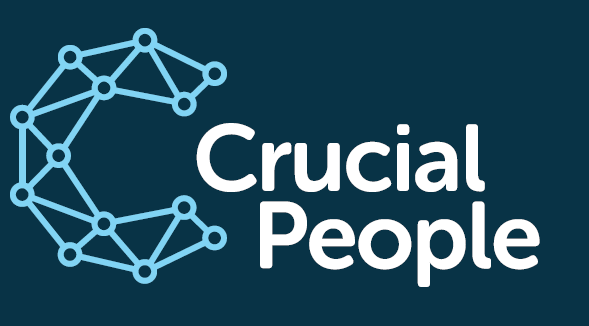If you're not moving forwards, you begin to move backward.
Training and personal development. Some people lap it up and sign on for every bit of extra learning they can get their hands on. Other begrudgingly trudge under duress into mandated training sessions that their company has organised, barely paying attention.
When speaking with people who are looking for alternative work, training and development is a subject that comes comes up again and again.
I am forever speaking with candidates who are unhappy with their current employer for that very reason. They were sold the dream, a new role, exciting new technology to play with, or perhaps a step up in responsibility with the promise of......."training".
Want to take a guess why they are now on the phone to me?
That's right. The training and development was lacking, either by the anticipated volume or quality, or lacking entirely.
It turns out that their new job was less a developmental role, more a trial by fire.
On the converse side, I often speak with people who feel like they are either top of their game (and some of them really are!), or others who are happy with their lot, don't want to learn anything new and want to continue to do what they are comfortable with. But is this really a good place to be?
Here are some great reasons why you should always be looking to develop yourself.
You don't know what you don't know.
One reason why some people don't think they need to learn more is that they think they know. But the problem is, you don't know, what you don't know.
The four stages of competence are:
- Unconscious incompetence - You don't know what you don't know. you are unconscious of the fact that there are areas that need improvement or things you need to learn
- Conscious incompetence - This is where you start to develop an awareness of what you don’t know. This stage can be uncomfortable because you must acknowledge your shortcomings. However, recognizing your shortcomings also motivates you to move forward and learn the skill so you can move beyond this stage as quickly as possible.
- Conscious competence - At this stage, you have learned and practiced enough to perform a task with a degree of quality and independence. The task does take focus and attention that makes you slower than it would for someone more skilled.
- Unconscious competence - In this final stage, you have now internalized the knowledge you need to perform a task and perfected your practical skills. You also no longer require concentration or active thought.
So even if you think you know the subject / skill / whatever - put yourself in for it. You might reveal that unknown, unknown, that you can improve upon.
Unlearned skills.
Let's face it. unless you are a savant, when you have a training session/course/lecture, whatever it may be, you do not take on board to the fullest extent everything that is presented or taught. So if you have only ever "learned something" once, you probably haven't really learned it at all. To learn, the brain builds on existing knowledge and that is why practice makes perfect. The chances are you need to learn something several times to have really learned it. a proportion of what you learned isn't fully taken on board in the first place. Some of it is also taken on board but just as swiftly forgotten as in the below point.
Learning retention
Even when you pay the utmost attention, you will not retain everything you have learned. Here are some shocking statistics I found on learning retention:
- After one hour, people retain less than half of the information presented.
- After one day, people forget more than 70 percent of what was taught in training.
- After six days, people forget 75 percent of the information in their training.
- Information in our memories can decay, or fade over time if not accessed enough.
Have you ever been on a refresher course and found yourself learning something 'new' or even something you realise you remember learning, but had gone completely to the back of your mind? This is why.
Complacency
Not the same as laziness by the way.
This comes back to the conscious competence stage mentioned earlier. You are functional at the task you are doing. You have learned how to do it, but is that what you are actually doing? The chances are that if challenged, if thinking about it, you know it, you can do it, and you can explain it. If somebody asked you to explain how to do X, or what steps you should take to do Y, you would be able to think about it and tell them or show them. But you're not doing it. You have become complacent and whilst functional are not doing it 100%.
Unless you retrain, relearn, practice. then you will not reach unconscious competence.
But guess what, as soon as someone else comes along and changes a rule, a method, a working practice, introduces a new policy, a new legislation - you have to relearn and retrain your brain to do those things habitually instead.
Obsolescence
The world is moving on at a pace technologically. Especially in this marketplace. Whatever your skill set, there will have been vast changes in the past year in the technologies available and the applications thereof. If you are not continually learning about the new technologies and able to apply them, then you stand a real chance of being left behind. It's no good these days being the world's preeminent expert on the Acorn BBC Micro! I have come across many highly skilled engineers with decades of experience, a sheer wealth of knowledge of mechanical plant and controls theory who are struggling because they have spent the last 5 years on a static site with, for example, an old Satchwell system and now they are looking for a new job, every man and his dog wants an expert level Tridium Engineer who can write software and graphics and integrate all manner of third party devices over LoRaWAN or through a cloud based SaaS product on an AWS server somewhere.
Inflexibility
Simply put, if you have limited skills, you have limited uses. You should aim to make yourself as adaptable and competent in as many relevant skills in your chosen field of work (and life in general) as you can. If you have one skill-set that you can reliably do, as your employer seeks more and more, you will become less and less valuable. Unless they have ample work doing your your one competence (ok a bit extreme perhaps) then you'd better be careful if they have a quiet spell.
Financial worth
As above, if you have limited skills and limited range of capability then your worth to your employer potentially diminishes. Why would an employer want to hire three people with 1 limited skill set each, if they could hire 1 person with three skill-sets and pay them more. Now you definitely won't get treble the work or treble the pay, but you will certainly be in a better paygrade and be better thought of.
Moving backward
So you have not undertaken continuous training and development, which means that you have not developed any new skills. But that doesn't mean you have gone backwards. Right?
And let's imagine that you somehow have managed to retain all of your prior knowledge and totally remember and apply everything you have ever learned without having any refresher training. So you can't have gone backwards .Right?
Well how about if of the 5 people in your job in your department, or the 50 people in your company division, or of all the people in your entire company, you are among those who have not actively taken any training and development. Not asked to go on those new product courses. Not attended the free lunchtime training sessions. Not updated your qualification to the latest version of the regulations, not learned that new software package. Well, I'm afraid that relatively, you have definitely gone backwards. It comes back to our treadmill. Everyone else has taken steps forward. You have stood still. Now you are back. Way back.
Changes in legislation or regulations
Oftentimes, there are changes brought about which are outside of our control, which can immediately have an impact if certain training or qualifications have not been undertaken. New laws come in, the regulations in the industry change, or accreditation schemes move the goalposts on you. One prime example is the withdrawal of CSCS Industry Accreditation or 'Grandfather rights'. We have seen multiple instances of people being unable to (or finding it very difficult at least) to get the site safety cards renewed as the regulations changes.
As you can see, there are many good reasons to give yourself a boost with continued training and development every time it is made available. And even when it is not, ensure you take responsibility of driving forward your own development with your employer. Many companies have corporate focus on training and development with sizable budgets dedicated towards it, but if you leave it all to your direct manager to drive forwards, you may find yourself disappointed. Often, your manager will be so busy at the coal-face fighting fires that identifying and organising a training course for you (and finding the time off-task for you to do it) will not be at the fore of their minds.
Even where your employer is not forthcoming in training and development, there are a wide variety of free L&D opportunities out there, for example Open University offer a raft of free courses on a wide range of subjects.
https://www.open.edu/openlearn/free-courses/full-catalogue
Then there are sources like New Skills Academy and Udemy who provide a plethora of short and affordable courses on a broad spectrum of subjects.
https://newskillsacademy.co.uk
So...........................
What are you going to learn today?
We have some exciting clients who really are shining examples when it comes to staff development and opportunity creation.
If you are unhappy with your current development, feel free to reach out for a confidential discussion on 02031549422 or info@crucial-people.com.











